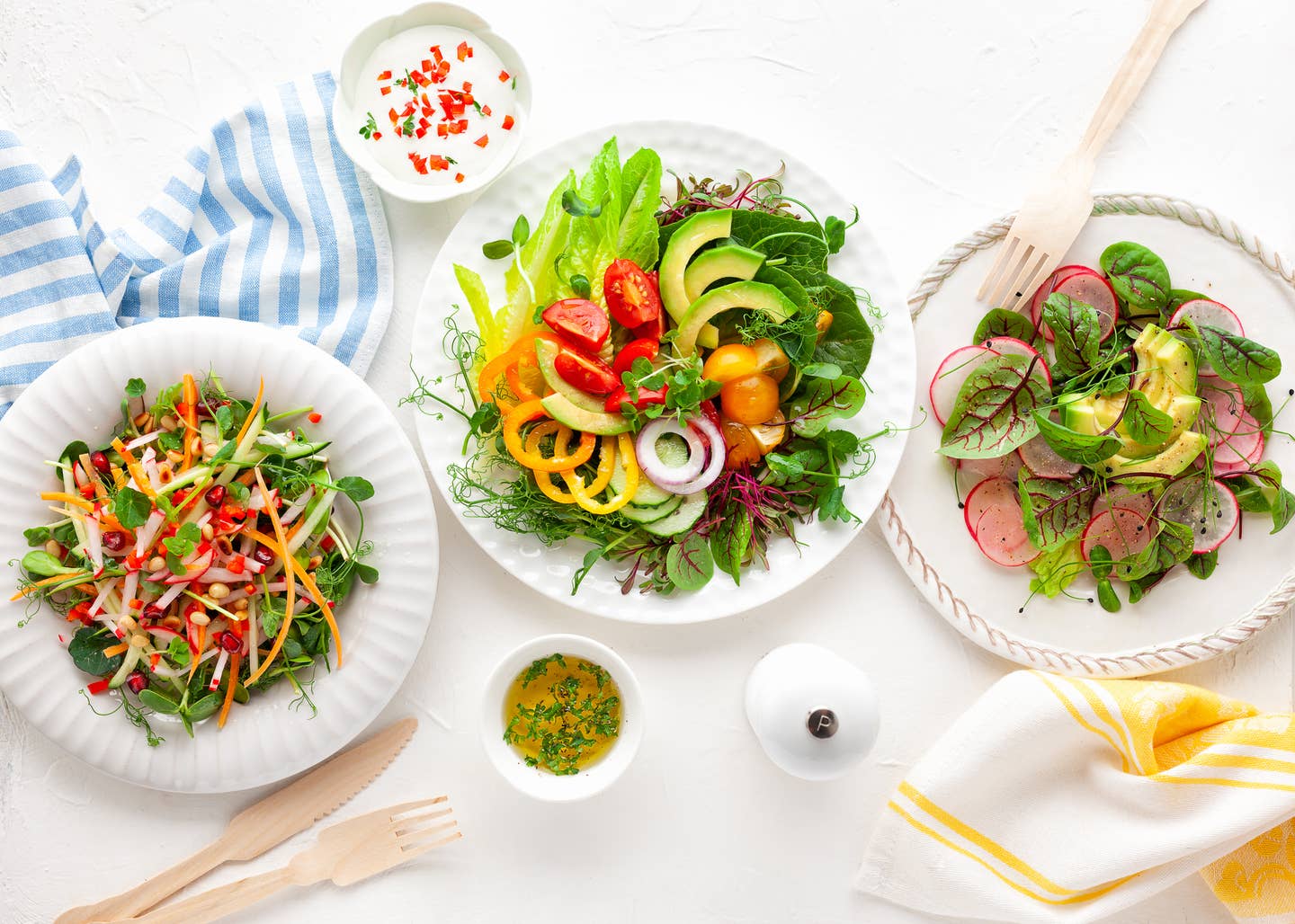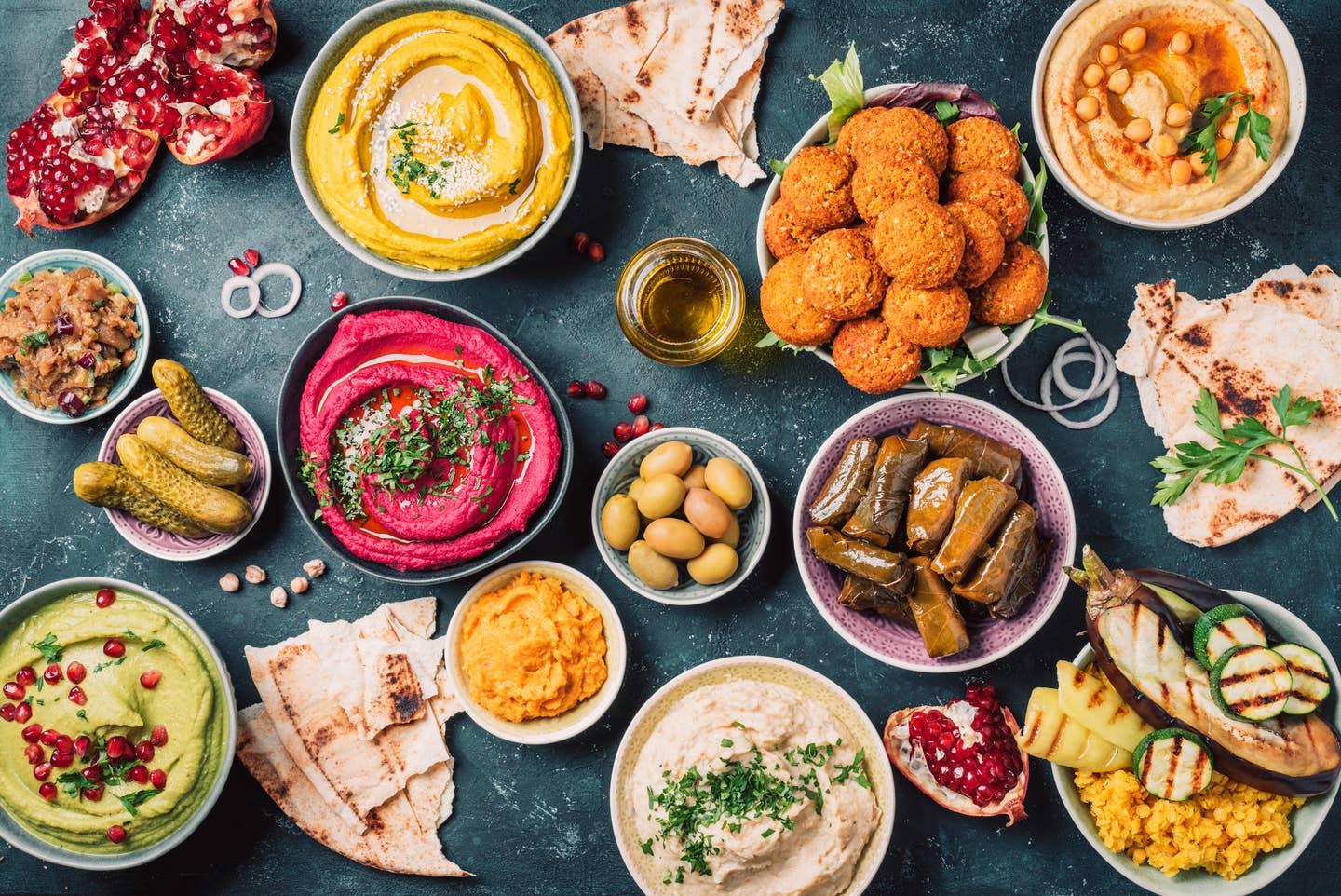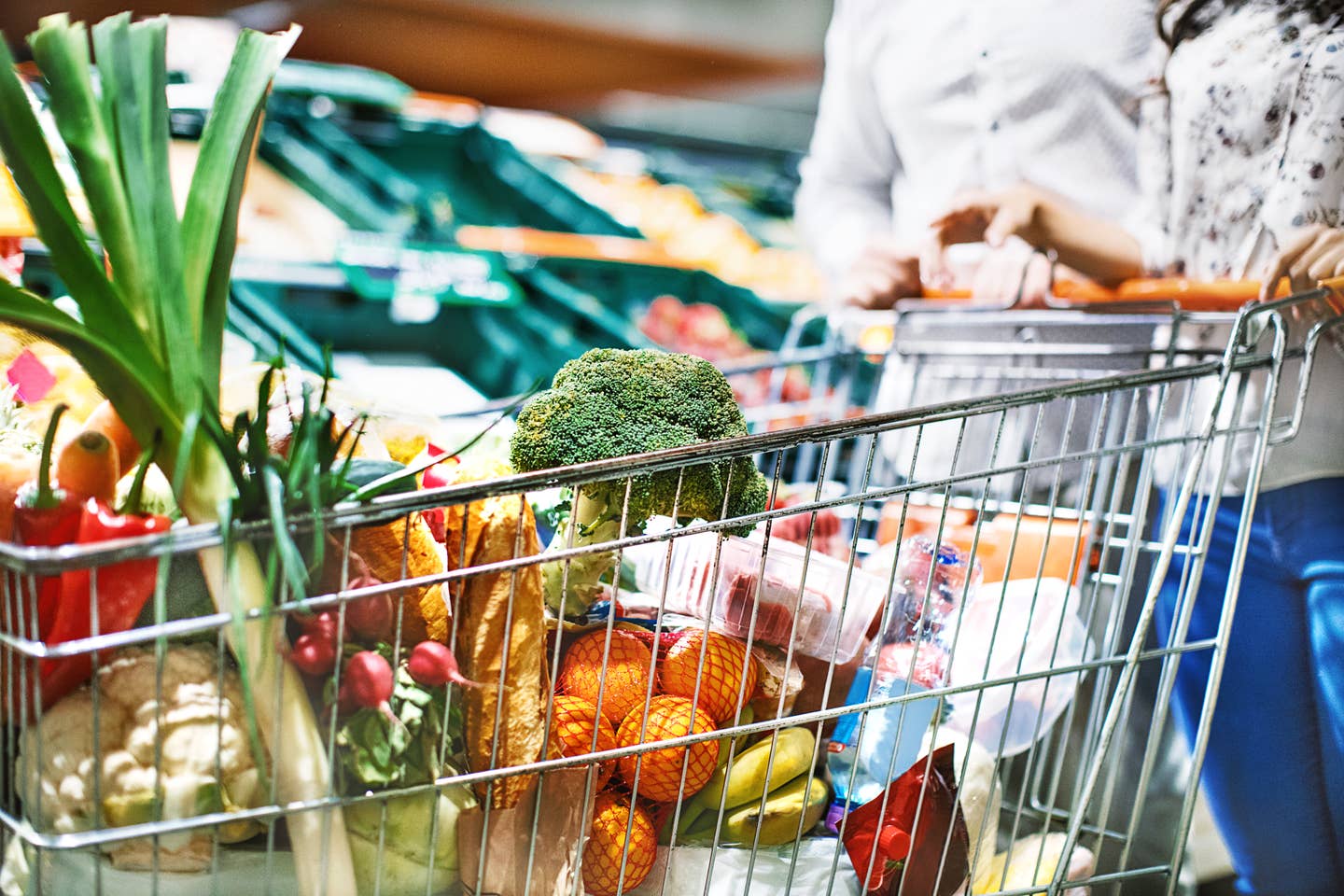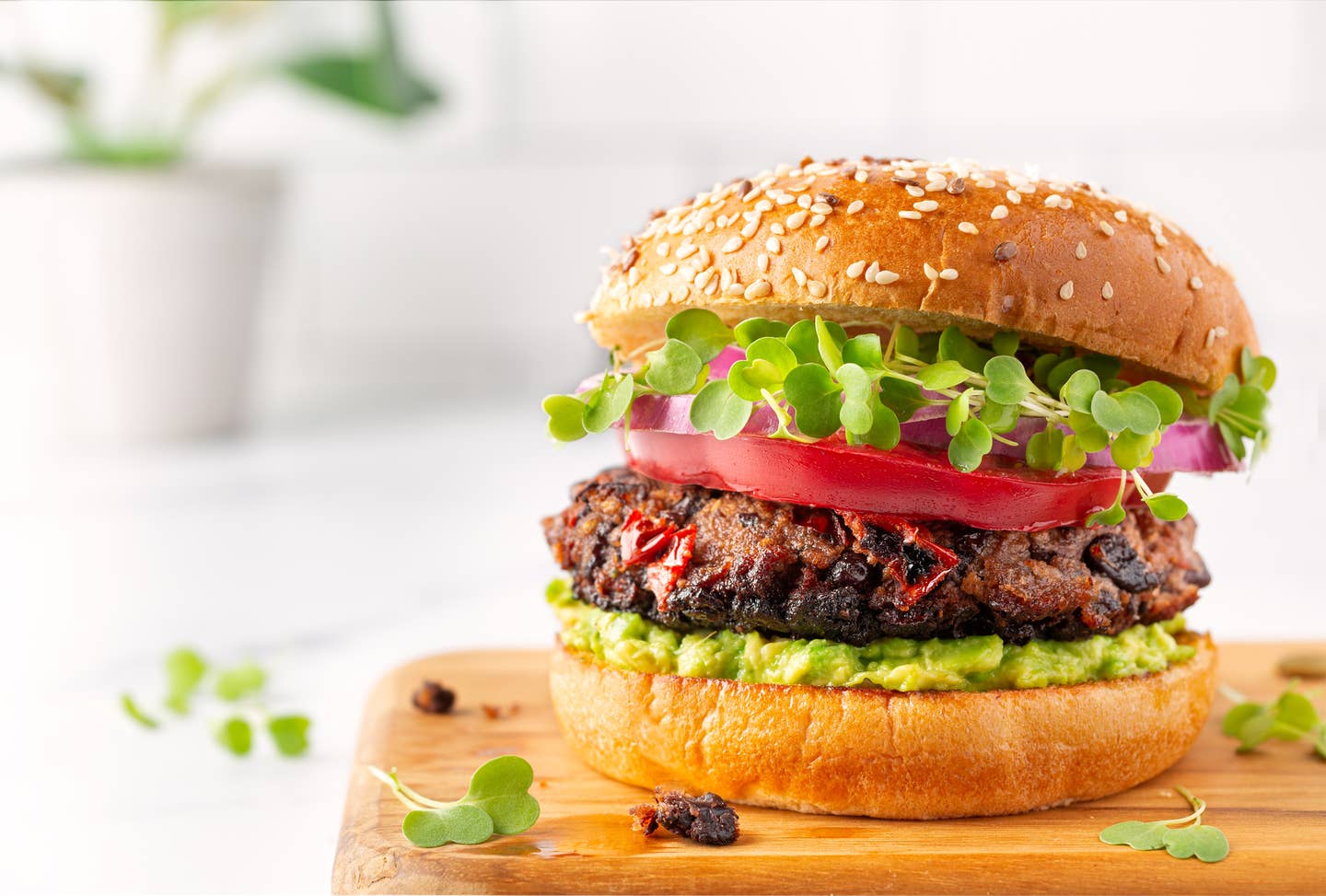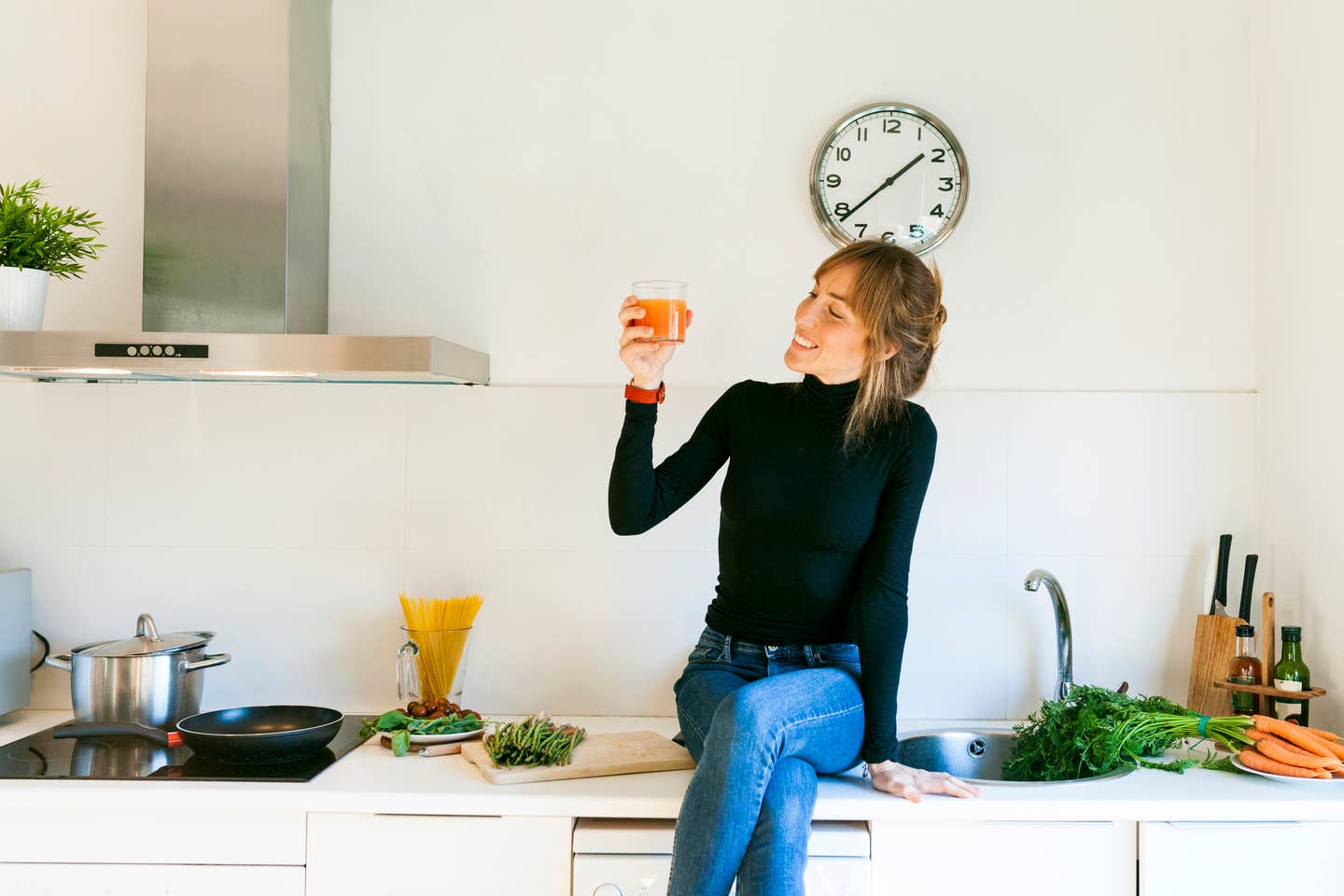
The 7 Questions Everyone Asks When They Start Eating Plant-Based
You’ve heard about the benefits of a plant-based diet, which is why you’re keen on making the transition. But behavior change isn’t easy, and no doubt you have a load of questions about eating plants. Here are seven frequently-asked questions about going plant-based or vegan.
The Top 7 Questions People Ask on a Plant-Based or Vegan Diet
Can I get all the protein I need from plants?
Any plant-only eater will tell you that this is the question they get asked the most, and it makes sense, given how much emphasis is placed on protein in today’s world. Good news: You can get all the protein you need on a plant-based diet. The surprise? “All plant foods contain protein in varying amounts,” says Jessica Spiro, R.D., plant-based dietitian and nutritionist in San Diego, Calif. Plant foods that are the most abundant in protein include tofu and other soy products, whole grains, quinoa, beans and legumes, nuts and seeds.
You only need 45 to 55 grams a day as a woman (add more if you're super active or training for an event) and 55 to 65 grams as a man (also add more if you're training or trying to build bulk). This amount is more than doable on a plant-based diet. See our piece on Top Sources of Protein on a Plant-Based Diet for your best bets on how to reach your goal each day.
Do I have to shop at a plant-based grocery store?
Fortunately, no. “You don’t have to shop at a specialty store or even spend a lot of money to follow a plant-based diet,” Spiro says. Staples such as whole grains, rice, beans, tofu, nuts, and produce can all be purchased in your local grocery store. But do note that specialty stores often have a different selection of plant-based products than traditional stores so it’s worth checking them out, too.
Why don't vegans eat dairy?
There are many different reasons not to eat dairy, but focusing solely on the health aspects, dairy products are the top source of saturated fat in the American diet, says Susan Levine, M.S., R.D., director of nutrition studies for the Physicians Committee for Responsible Medicine. Kids usually get it in the form of milk while cheese is the most likely source for adults. Yet the facts are hard to swallow, namely because they run counter to what the USDA, which is heavily influenced by the dairy industry, recommends.
“The benefits of eating dairy, even drinking milk, don’t pan out, as research shows that dairy doesn’t help – and could hurt – health, even bone health,” Levine says. Even more importantly, all saturated fat, even from dairy products, raises your risk of stroke and heart attack. What’s more, dairy has been linked to increased risk of diabetes and certain forms of cancer, namely prostate for men and breast and ovarian for women, she adds.
Here's a fast fact: the majority of people in the world can’t digest milk and are partly or fully lactose-intolerant. “Dairy is also a highly contaminated product, loaded with hormones and pesticides," Levine says "and research shows that cheese is addictive, one reason you have trouble eating just a little, which increases your risk of gaining weight and thus, having health issues. Choose oat, almond, or other plant-based alternatives to function at your healthiest level.
Why don't vegans eat eggs?
Nothing if you don’t mind having high cholesterol. Of course, studies make it sound like cholesterol from eggs is harmless and perhaps even beneficial. Not true. “The studies ask people who are already eating a high-cholesterol diet to add an egg a day to show that cholesterol levels don’t rise,” Levine says. “As a result, nothing in their cholesterol levels changes, but we know that if you don’t eat dietary cholesterol and you add an egg a day, your cholesterol will rise.” What else you should know? Many of these studies (to tell us that cholesterol in eggs is harmless) are funded by the egg industry.
While you do need some cholesterol in your body, you make enough naturally and don’t need to add any from food. A regular egg contains 213 milligrams (mg) of cholesterol, and although most guidelines recommend no more than 300 mg per day, it’s wise to eat as little as you can. Plants, by the way, contain no cholesterol.
Does eating more fiber make me go to the bathroom more?
There will definitely be changes in the way your body digests food since meat and animal products can stick around much longer in your intestines than fiber-rich veggies, fruit, and grains, seeds, and nuts, which tend to move nutrients through faster. Even so, people who are new to plant-only eating are often surprised by how much more they have to go to the bathroom. “That’s an indication of how poor the standard American diet is,” says Levine. Most people, after all, fall short on their fiber needs, and fiber, found only in plants, is what makes your body move things along, and that’s a good thing.
"That fiber cleans out your insides and keep everything moving,” she says, adding that it also helps prevent some of the cancers of the intestinal tract, namely colorectal cancer. On average, you should be pooping at least once daily, although note that it’s normal to poop more, depending on your exercise and eating habits. Ideally, your stool should look like soft-serve ice cream -- not hard pellets. If what you see in the toilet is too hard, that’s a sign things aren’t moving quickly enough and you need more liquid, namely water. Hydrate!
Will I have more gas and bloating on a plant-based diet?
While moving to a plant-only diet is the best thing you can do for your body, it’s going to take your digestive system time to adapt. Your entire gut microbiome is shifting over from protein-based to plant-based, so you can feel like you're emitting more gas than usual. Because of that, expect to feel slightly bloated, and especially gaseous, as you transition. Why? You probably haven’t been eating enough fiber, until now, which means your gut didn’t have the good bacteria to help digest that fiber -- until now. As you add fiber and ask your body to digest it before it's fully transitioned to a new, healthier microbiome, the gas and bloating can occur. The good news? “By eating fiber more regularly, your gut microbiome will start changing, which means that eventually, the gas and bloating will go away,” Levine says. Until then, add fiber slowly to your diet to give your body time to adjust.
Is it expensive to be plant-based or vegan?
We get this a lot. Turns out that meat is expensive, and it keeps going up, especially if you value grass-fed, organic and low-fat cuts of beef. The price of animal products like beef and seafood has increased by more than 40 percent, according to the story we ran in The Beet. The better the quality of meat, the higher the prices.
Meanwhile, many plant-based sources of protein, such as beans, lentils, chickpeas, and other legumes are the cheapest sources of protein on the planet,” according to Robert Graham, MD, an internal, functional and integrative medicine specialist and the founder of FRESH Med NYC at Physio Logic in Brooklyn. “One bag of beans can last a family of two for days. And if you add whole grains to them—brown rice, quinoa, barley—you have the perfect meal with protein, complex carbohydrates, and all nine essential amino acids.”
So when you go to Trader Joe's or Whole Foods look for the legumes and fresh produce that is the least pricey, and of course, check out the great array of recipes that we publish every day on The Beet for more inspiration of how to be healthy -- physically and financially!
More From The Beet
